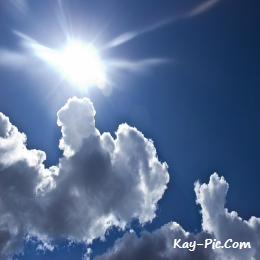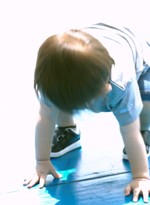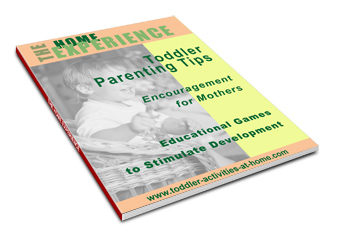Preschool Science Activities_ Light
For Preschool Science Activities_Light, Make a cave
Using your dining room table chairs and a dark blanket, make a cave for you and your toddler to crawl into. Take a torch or two in with you and lie in the cave with the torch on and look at the lights. Make them dance together, try and make shadow animals in the glow and just enjoy this time together.
Preschool Science Activities_Light
Transparency
Collect different articles from around the home vase, ball, oven glove, serviette, paper, wooden ornament etc. Let your preschooler shine a torch on one side and then see if they can see the light through the object. Let them shine the torch through their hand and see if they can see the light on the other side.
Talk about how light cannot shine through all objects. Objects that let light through are transparent. Object that block light are called opaque. Objects that let only some light through are called translucent.
Shadows
On a sunny day go and look for your shadow outside. Remind your preschooler that their bodies dont let light through and we are therefore opaque.
One night just before lights out find a nice wall to make shadow creatures.
Mirrors
Using a hand held safety mirror and a torch experiment with how you can make light bounce off ceilings.
Carefully help your child with this next preschool science activity. Help them to place the safety mirror on the bridge of their nose, just under their eyes. Get them to walk very slowly while looking into the mirror. Do they feel like they are walking on the ceiling?
Colour slides
Cut out some squares of colour cellophane paper. Let your preschooler hold them one by one in front of their torch and shine it against a white wall. Then double up on the colours and see how the torches beam changes.
Preschool Science Activities_Light Now go to Air
Science Games And Fun Experiments
Science games and fun science experiments show children how the world around them works, this is a natural curiosity that all children have and will often ask questions about...
It won't be until the ages of 5 to 7 that your child will enjoy the science of life processes and living things and doing simple experiments will have then excited and eager to find out more.
Playing science games and doing some simple science experiments at home will allow your child to ask questions without the fear of feeling silly. It will also allow them to be more hands on than they would be in a classroom.
In school, science will be split up into three small groups. These are Life Process and Living Things, Materials and Their Properties and Physical Processes.
Other preschool pages for you
Home l Toddler Music Activities l Toddler Music CD's l Toddler Musical Instruments l Preschool Science Actvities l Water Actvities l Air Actvities l Movement Actvities l Light Actvities l Magnets Actvities l My body Actvities l Sound Actvities l Nature Actvities l Toddler Painting Crafts l Toddler Craft Books l Toddler Painting Tips l Toddler Activities l Bible Craft Index l Development l Toddler Crafts l Toddler Development Guidelines l Preschool Math Activities l Preschool Alphabet Activities l Preschool Cooking Activities l Article Index l Toddler games index l Toddler Educational Toys l Toddler Imaginary Play l
To Help Busy Mums and Dads Here Are Some Related Shopping Items
When you purchase from this link, you are actually purchasing from Amazon.com, and you can have peace of mind that your order will be processed by Amazon’s secure order server.











New! Comments
Have your say about what you just read! Leave me a comment in the box below.